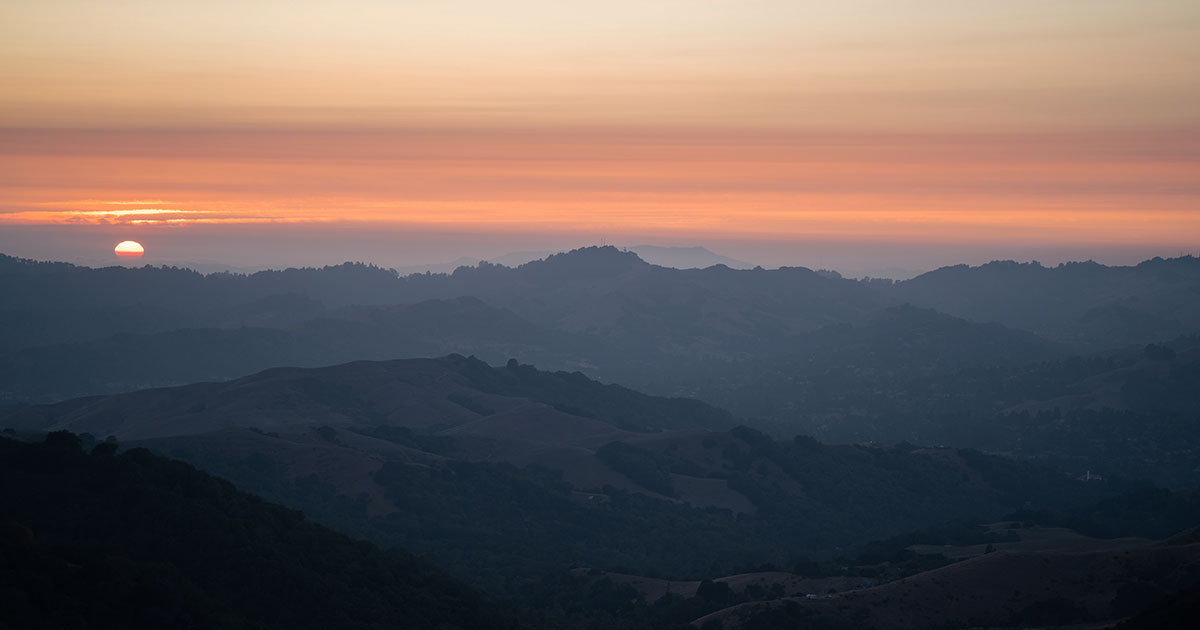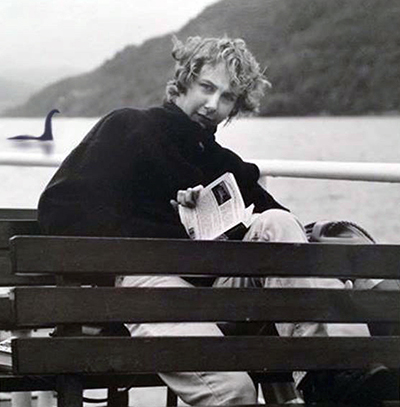SPOTLIGHT
★ ★ ★ ★
LET THEM EAT MAGA

By Maria Behan
At first glance, California Wine Country looks like a placid bougie paradise. Fancy sips of elegant vintages washed down with a deluge of talk about soil, slope, and proximity to/eschewal of oak? You’re in luck. Jonesing for fussy cocktails, complicated cupcakes, and cutesy outfits for cutesy dogs? Check, check, and double check. But peer beneath the frippery and you may spot sobering signs of the resentment and unrest brewing across the United States as we enter the second year of the Biden administration and the third of the coronavirus pandemic.
Long before, but especially during the pandemic, the rural town I live in has tarted itself up to lure affluent visitors from the San Francisco Bay Area that lies just to our south—a technology hub that’s one of the epicenters of America’s new Gilded Age. Like a bird waving flashy plumage to attract a mate, my once-humble town (former nickname: The Buckle of the Prune Belt) contorts itself to catch the attention of jaded techies. We do it with opulent but purportedly eco-friendly hotels that charge around $1,500 a night, a “woodsy chic” salon that masquerades as an old-time barbershop, and fortune tellers whose business model relies on moneyed millennials made extra gullible by wine downed in the tasting room next door. Sure, these days visitors might be carrying coronavirus along with their Amex gold cards, but the latter trumps the former as far as the Chamber of Commerce is concerned.
Despite all the obnoxiously conspicuous consumption going on, “country” is still part of Wine Country. And in America, country doesn’t just mean open landscape and widespread agriculture. It also often means hefty outdoor dogs (not the lap models sporting booties from the boutique in town); nostalgia for “the good old days,” be they real or imagined; and guns of many shapes, sizes, and calibers.
Country also means farmworkers, many of them undocumented, who are the bedrock of the wine industry and the other agriculture so vital to our economy. Like essential workers all over the United States, they are often poorly paid, even as they face greater hazards than other workers. In California, those can include harvesting grapes and other crops in brutal heat, breathing in toxic levels of wildfire smoke, and sometimes, both at the same time.
The Natives Are Restless
If you live in these parts and don’t make your living off tipsy tourists, you can indulge in a luxury denied other residents: curling your lip at the frou-frou shops, restaurants, and tasting rooms—and especially their entitled, red-nosed habitués. But sometimes our hostility to outsiders goes further than shaking our heads at selfie-seeking tourists getting their high heels stuck in the dirt that nurtures our grapevines. Some folks around here are peeved because it seems like everybody’s “woke” except them and their tribe—one that may be small in real life, but swells exponentially when they turn on their TV or computer. Or they’re angry at the “sheeple” who are vaxxed and masked-up while they and other red-pilled patriots refuse to be microchipped by billionaires. Or it’s as simple as feeling like everybody’s getting rich except them. Many of those harboring these kinds of grievances train considerable ire on the easiest targets: the “illegals” living and working among us.
You can easily spot the trucks of aggrieved right-wingers because they’re bigger than ordinary ones (which are already stupid big, if you ask me) and adorned with defiant bumper stickers and flapping American flags (which sadly, have become kind of menacing, too). Those trucks are impossible to miss, especially when they’re tailgating you on the highway or burning rubber in the town square to counter-protest liberal protestors (something I’ve witnessed during demonstrations against the outrages of the Trump administration).
There are also stealthier signs of right-wing activity here in the land of milk and honey, or more pertinent for these parts, chèvre and chardonnay. Cryptic stickers cropping up on stop signs and telephone poles that Internet research reveals as tags for a white-power group. A flyer instructs “fellow patriots” not to be fooled by the peace-and-love posturing of their aged-hippy neighbors. Because, the flyer insists, those gentle-seeming neighbors aren’t actually gentle—actually, they hate you. Indeed, the flyer goes on, you shouldn’t just be shunning your faux-benign enemies, you should be stockpiling arms because they’ll soon be coming for your guns and your canned goods. (Not-so-fun fact: Websites called My Patriot Supply (tagline: Stay Alert and Prepared, Friends) and 4Patriots (tagline: We Champion Freedom & Self-Reliance) hawk emergency rations, the kind you store in your bomb shelter and defend with what’s in your gun cabinet.)
Fear and Loathing in the Supermarket
Despite California’s mask mandate, there is usually a smattering of men (women offend too, but around here, it’s about 80% men) with masks below their chins at what’s starting to feel like a woefully misnamed Safeway grocery store. I’m used to that, but during a recent stop, I encountered two especially ominous characters. Creep #1, in the frozen food aisle with a mask hanging beneath his jowls, sported a t-shirt stretched over his paunch that screamed “FAUCI LIES” in six-inch-high letters. Creep #2 was a skinny dude with a wide grin and a mask dangling from one ear who was trying hard to catch everybody’s eye, though we all did our best to pretend he wasn’t there. Waiting in a different, longer, checkout line to avoid him, I noticed he was wearing a National Rifle Association (NRA) t-shirt. The message seemed clear: Say something about my mask, snowflake, and I just might blow you away.
The U.S. certainly isn’t the only country beset by anti-mask acting-up, but when you mix that with uniquely American gun-worshiping zealotry, it’s chilling AF. Standing in that checkout line, I felt like I was not just in a pandemic, but at the start of a civil war the pandemic may be helping unleash. It felt like a dark turning point. And lord knows we’ve all had far too many of those…
Some of what I’m sharing may be the hand-wringing of a lily-livered liberal, but there’s plenty of evidence that there’s an ominous and increasingly armed threat spreading across the American landscape, especially its rural parts. The Department of Homeland Security and the Department of Justice both rank right-wing extremists as the nation’s number-one terror threat. In January 2021—the month of President Biden’s inauguration and the Capitol riot that hoped to stop it—more than two million firearms were purchased, an 80% spike over the previous January. “Experts think interest in guns has surged due to a combination of politics, protests, and the pandemic,” according to a Forbes article. A Pew Research survey from a few years back showed that 46% of Americans who live in rural America own a gun, compared with 28% of suburbanites and 19% of city dwellers.
As a friend remarked about the belligerent and sometimes armed anti-mask and -vax protesters in his even more rural part of California, “To me, it looks like blind fear trying to masquerade (loudly) as courage. The initial irrational rush to hoard toilet paper seems very mellow now.”
I agree. Fear, selfishness, and childish wishful thinking are often behind anti-science reactions to the pandemic, but who wants to cop to those motives? Which is why we’re constantly subjected to tedious bleating about “freedom” and “liberty.” Rhetoric that’s hardly reassuring when you consider writer Thomas Mann’s observation soon after Hitler’s rise: “If ever Fascism should come to America, it will come in the name of ‘freedom.’”
Freedom-proclaiming fans of pseudoscience staged a protest in my town a month ago. A city council member had revealed that she wasn’t vaccinated, citing a jumble of reasons that swiftly elevated her from an obscure official to a Joan of Arc for anti-vaxxers. When they pulled up to city hall in a shiny gold party bus dubbed The Twerkulator, it struck me that this moment of American decline feels as farcical as it does tragic. To paraphrase T.S. Eliot, we may be ending not with a bang, but with a booty shake.

Maria Behan writes fiction and non-fiction. Her work has appeared in publications such as The Stinging Fly, Huffington Post, The Irish Times, DailyKos and Northern California Best Places.
























I want to say something sweet about the article, how well written (as always) and thought-provoking.
It made me sad to hear about my old town; a town of good-earth people, farmers, 4Hers, tractor pull-ers (?) become the town I live in, here in Florida.
So, thank you Maria. Well written and thought-provoking.
Michael